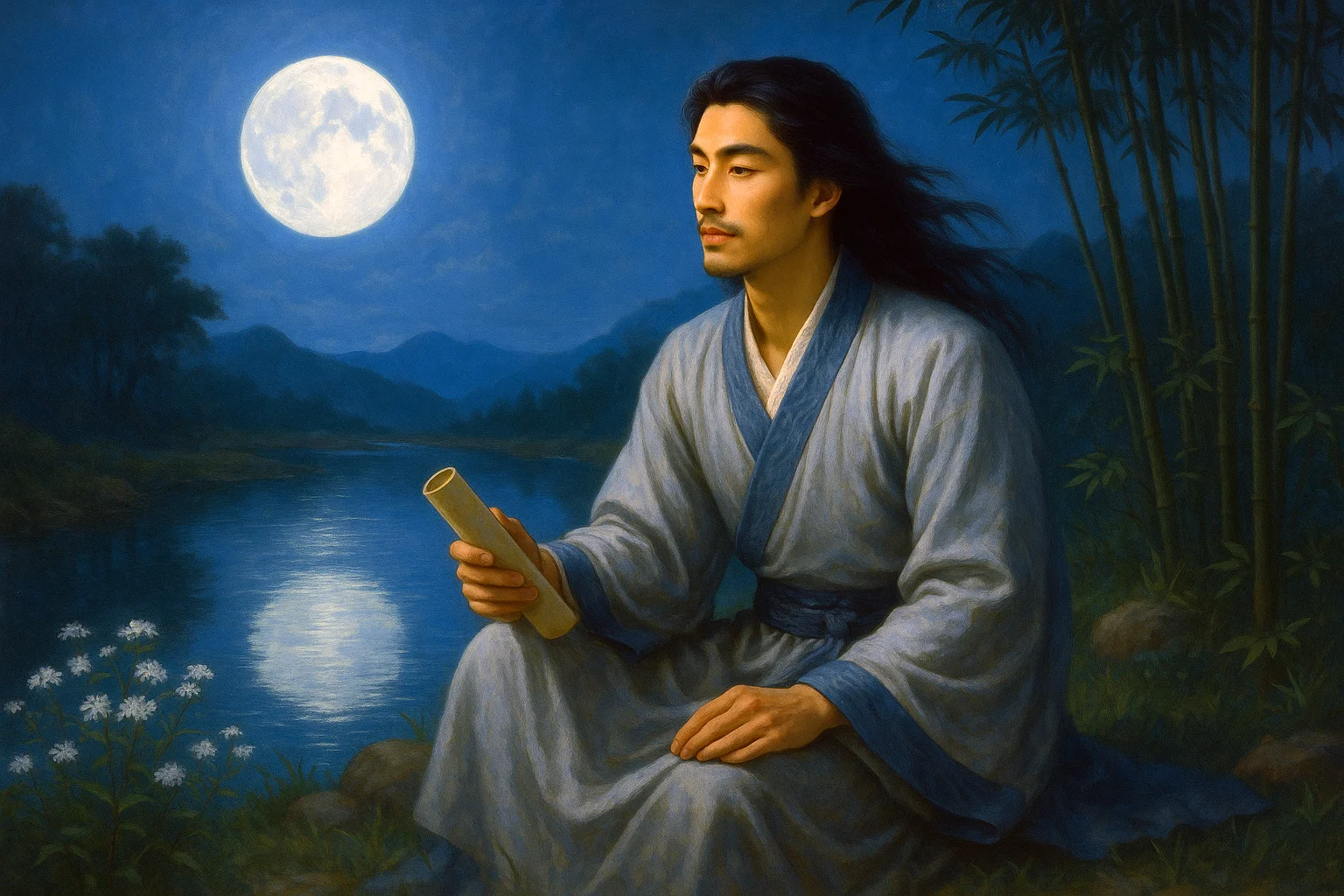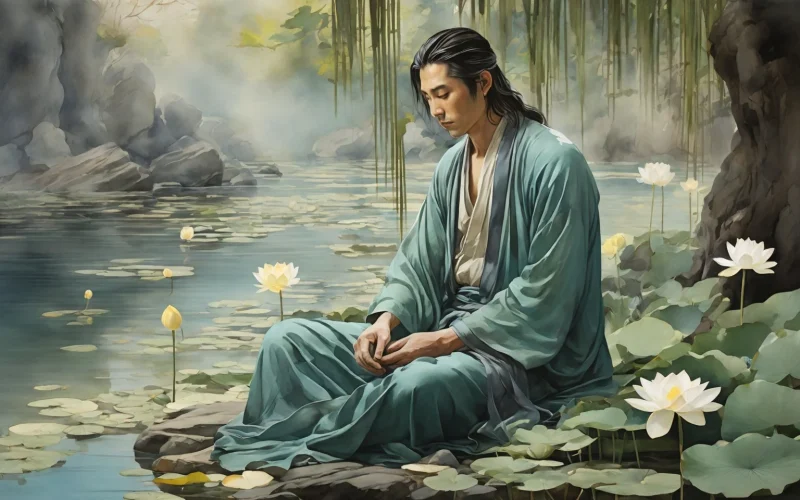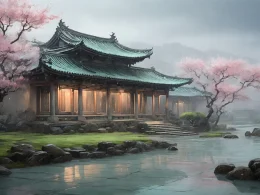Lotus mirrors fish like floating calligraphy,
Woodcutter's boat rides time's crease through geography.
Rain-sharpened springs split hairs of perception—
Why must South Lake claim reflection's perfection?
Original Poem
「雨后环波亭次韵四首 · 次绾得风字韵」
曾巩
荷芰东西鱼映叶,樵舟朝暮客乘风。
清泉雨后分毛发,何必南湖是镜中。
Interpretation
This poem was composed during the Northern Song Dynasty as a response to a friend's verse, written during a visit to Huanbo Pavilion after rain. "次韵" refers to composing poetry by following the rhyme scheme of the original poem, with "绾" likely being the name of the poet friend. "得风" serves as the rhyme character in this poem. The verses depict the scenery of the lakeside pavilion after rainfall, blending natural vitality with the poet's philosophical reflections. They showcase both meticulous observation and a serene, far-reaching state of mind, highlighting Zeng Gong's remarkable ability to craft poetic imagery—a quality that complements his status as one of the "Eight Great Prose Masters of the Tang and Song."
First Couplet: "荷芰东西鱼映叶,樵舟朝暮客乘风。"
Hé jì dōngxī yú yìng yè, qiáo zhōu zhāomù kè chéng fēng.
Lotus and water chestnuts spread east and west, fish dart beneath leaves, their reflections shimmering; Woodcutters' boats sail with the wind at dawn and dusk, ferrying travelers.
This couplet captures the lakeside scenery around Huanbo Pavilion, where lotus and water chestnuts intermingle, aquatic life thrives, and boats glide through the waters—a lively interplay of movement and stillness. Through these natural details, the poet conveys the vibrant harmony of the post-rain world, expressing a recluse-like appreciation for leisurely living.
Second Couplet: "清泉雨后分毛发,何必南湖是镜中。"
Qīng quán yǔ hòu fēn máofà, hébì nán hú shì jìng zhōng.
After rain, the spring's clarity can distinguish strands of hair, reflecting like a mirror yet rippling with light; Since this place already offers such splendor, why seek the famed "mirror-like" scenery of South Lake?
Here, the poem deepens its meaning, using the purity of nature and the clarity of spring water to evoke an epiphany: beauty need not be sought afar—it is already present before one's eyes. The rhetorical "何必" ("why must") expresses the poet's cherishment of the beauty at hand and his recognition of transcendent wonder in the ordinary.
Holistic Appreciation
This poem, with its remarkably concise brushstrokes, depicts a vibrant yet serene lakeside scene after rain. The first couplet approaches from a visual perspective, portraying both the beauty of flora and fauna and the liveliness of boatmen's activities—a perfect balance of movement and stillness. The second couplet transitions from scenery to philosophy, using the metaphor of "spring water parting hair strands" to illustrate nature's ultimate clarity. By negating the "Southern Lake" imagery, the poet guides readers to reflect on the relationship between state of mind and physical location.
Though composed as a poetic response, this work stands independently with its profound yet succinct artistic conception. It not only demonstrates the poet's mastery of natural description but also reflects his philosophical musings on contentment and tranquility—a mind free from worldly desires and at peace with simplicity.
Artistic Merits
- Delicate Scenery, Dynamic Stillness
Images like "lotus and water chestnut", "fish reflections", "boats gliding", and "clear springs" construct a vivid, lively natural space—meticulously observed yet free from artificial embellishment. - Philosophy Embodied in Scenery, Brevity with Depth
The latter couplet uses spring water's purity as a metaphor for mental clarity, while the rhetorical question expresses the poet's preference for simplicity over distant wonders—rich in philosophical insight. - Fresh Language, Graceful Simplicity
The syntax appears plain but carries profound meaning, exemplifying Zeng Gong's signature style of "elegant ease that exhaustively explores truth."
Insights
This poem reminds us that beauty need not be sought afar—clarity and serenity often reside in the "after-rain" moments of daily life. Through details like lotus leaves, clear springs, and fishing boats, the poet invites us to slow down, observe our surroundings, and appreciate the philosophy and aesthetics embedded in nature. This state of "eyes beholding scenery, heart free from desire" is not merely an artistic stance but a wisdom for living.
About the Poet

Zeng Gong (曾巩, 1019 - 1083), a native of Nanfeng in Jiangxi province, stands among the illustrious "Eight Great Masters of Tang-Song Prose." His writings distinguished themselves through an elegant classical balance, celebrated for their rigorous argumentation and refined literary craftsmanship. While his poetry embraced an artless subtlety, his prose achieved what critics hailed as "the very essence of purity" - an achievement that, though perhaps less dazzling than his contemporaries like Su Shi or Wang Anshi, earned him posthumous reverence as the founding master of the "Nanfeng Literary School."












